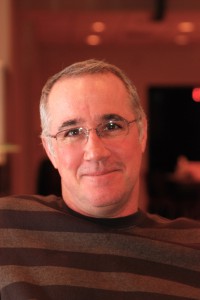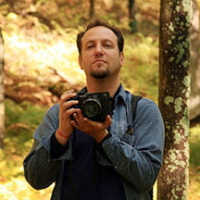
Making a Living with Audio Post Production
Stuart Kollmorgen is the co-founder of Big Yellow Duck, an audio post production facility located in New York City. He is an experienced composer who attended Berklee College of Music. Stuart got his start in the performance arena, playing in several bands in Boston and New York City before developing an interest in television, advertising and film music, a major area of professional focus for him for the past two decades. He has composed the score for the Playhouse Disney children’s shows and Discovery Kids shows. With Big Yellow Duck, he has done soups-to-nuts audio and music production work on shows like Doc Mcstuffins.

I spoke to Stuart about his company Big Yellow Duck, how he fell in love with long-form television and post production, and the skills he believes musicians and composers need to have to actually work lucratively and experience real longevity in the music industry.
MC:
Stuart- thanks for your time. So, what is Big Yellow Duck?
SK:
It’s an audio post production facility, but as we move forward, we find that what that is an umbrella for is getting larger and larger. We started this business with a schizophrenic focus. My partner’s in advertising, and he worked as an agency producer for 15 years. He has very good people skills. I am a composer and have been concentrating on long-form animation for the past decade.
MC:
How did you start off in music, and how have you arrived at a place where you’re making a good living just being a composer and running an audio production facility?
SK:
I consider my post production with with Big Yellow Duck to be my grown-up job, my “day job.”
I found a guitar teacher that I admired when I was 14. I had taken lessons in a church basement – nothing special. But then I met this dude named Dave Cleveland, and it just took. I said, “This is what I want to do.” I went to my parents and said, “I heard of this college called Berklee, and I’m going to go to Berklee when I go to college.” This was in junior high school, and they were hoping it would wear off I think, but it didn’t. I did go to Berklee, which was enormously helpful in some ways and enormously unhelpful in others, because there were more career options as a regular musician at the time, and now those have really dried up. The chances of playing in a pit band or playing in a live situation where you can make a living seems to be very difficult these days. Those union jobs have been largely been replaced with other forms of entertainment.
Originally I was a songwriter, and I wanted to have bands. I had a couple little bands in Boston and moved to New York to start a band with my brother, which we did. But the amount of apathy in New York City is huge. You don’t go out to clubs to see bands here, and it just turned me off to the whole scene.
My brother and his buddy had a huge dilapidated loft on the LES and lived there and rented it out. It had been a printing facility, so it had a huge dance floor-like area in it. They rented it out for parties and did performance art shows there under the name “The Gusto House.” John Leguizamo, Karen Finley and Blue Man Group went through there. This was where I started getting interested in scoring theatre. It seemed cooler and expanded what I did into a more interesting and viable art form. Then I met some guys who were doing films, and I started doing a few films. I opened a tiny studio downtown and then some of these film people were working on commercials, and I got introduced to some people in the commercial world. That’s how I got started, and also how I got ruined as a songwriter, because I started making money selling music. Once you start doing that, you don’t really want to stop. You don’t say, “What do I do in my downtime? I think I’ll write some songs for no money.”
MC:
What was the process like getting in front of people that wanted your music?
SK:
It was fairly haphazard at the time. I started to get a reputation as a guy who could do a little bit of film scoring. I was working with an engineer who introduced me to a guy that was working at a company called PDP radio that put jingles and advertising into the Musak feeds going into supermarkets. They wanted me to personalize it to the stores, so they hired me to write radio stingers for all these grocery stores. They had 120 grocery stores, so over the course of a couple years, I was recording a bunch of things for Piggly Wiggly Radio and Schnucks Radio. It was a ridiculous gig. But it paid money and gave me custom advertising experience. I was also starting to record voiceovers and sound effects for these commercials.
Then I met a bona fide TV producer, a guy named Tom Pomposello. He had gotten into the ground floor at MTV back in the old days, and he had done a bunch of music for them. He was parlaying the coolness, even though he wasn’t a cool guy. He was a blues bass player, and certainly not a New York hipster by any stretch of the imagination. He parlayed the coolness of working at MTV and then Nickelodeon when it came around and helped me get into advertising work. I was introduced through him to a bunch of ad agencies and started getting kooky ads. It was when samplers were becoming available to the masses and everyone was throwing everything but the kitchen sink into the samplers and playing it along with the music track. We were doing Burger King spots and spots for Dunkin’ Donuts.
MC:
Were you always on your own? Did you ever partner with bigger houses, or did you just go from gig to gig and meet different people, getting work through working?
SK:
I got work by working, and I got involved in a co-op. It was very organic. I’d opened my studio downtown, and next door to me, unbeknownst to either of me or the person next door, another studio built a facility. We knocked down a wall and wound up as one co-op facility. It made sense, since we had three or four guys working in the same business. We had three or four other guys that came in and out. But in this situation, you wind up being “close to the river.” There’s business coming in and out through the studio, and you meet people there. I’ve never really looked at it this way, but I think having the studio and being in a facility like that was what sustained me, because you just wind up meeting people. You get exposed to all these other things you’d never planned on doing, and you even find out, delightfully, that you like them.
MC:
Why do you think you persevered on your trajectory when others didn’t? Why do you think that several decades later you’re still making a living and supporting a family in New York City making music when so many others could not?
SK:
Clearly, it’s the TV work that sustained me, even though I’ve recently seen the budgets spiral down. Once you didn’t need a big studio to do what I’m doing anymore, the clients quickly caught on that you could hire someone working out of home to do it, and the budgets took a hit.
I think what sustained me was that I lost my lease downtown, but I realized the model for me was, “Get close to the river. Get close to where there’s a lot of business coming through.” In the late 1990s, I moved up to Midtown into another audio post production facility. I had lost a job working on a show called Little Bill. They were going to have me do not the music, because Mr. Cosby and his people were going to take care of that part. But they wanted me to do the sound design on it, and I had been doing a lot of that work as well. I didn’t get the gig, and it turned out to be geography and their perception that because I was a one-man operation, I wasn’t going to be able to handle this job. It was a little eye-opening to me. I decided I was going to find a place where they do this kind of work. I was hoping to get into long-form TV. At that point in time, I was doing a lot of promos: “Coming up tonight;” “Coming up next Tuesday.” They were a lot of kitschy jobs, and not anything you’d really want to hang your hat on. That kind of work is even worse than advertising. It’s great to do those spots, but they’re very temporary; they disappear. The promos are turning over money because they usually pay great, but they’re nothing you want to show anyone.
I found an audio post house and made a deal with them, hoping to get closer to the long-form work. I wound up landing a cartoon that they were posting there. The owner of the place, who was going to get a piece of the action, was pushing me to his clients to allow me to demo on the cartoon, and I did. I spent 14 hours on the first 14 seconds, because I figured, if I don’t get them there, I won’t get them. I needed to really nail it, and a lot of it was just coming up with the right aesthetic so it flowed. And I wound up getting that gig.
MC:
The “close to the river” concept is great, but obviously you have to be social and part of some kind of community. And being a studio-driven business, that meant having a studio that was either adjoining or in the same building or a collective of people. It sounds like that’s been a great part of your success.
What other advice based on your experience would you give someone that is looking to make money on music? You did a lot of live performance as well. That’s not your current expertise, but what mistakes did you see over and over again along the way that you think are easy for musicians to avoid?
SK:
If I think I have a shortcoming in this business, it’s my ability go out and sell myself. I’m not great at that. My advice in terms of that is, “Don’t do what I did.”
The people I find in this business that still have some juice tend to still know what’s going on in the scene and tend to not be in a bubble. This is funny, because it’s counterintuitive to what I do I tend to get on a show and then not spend as much time as I should maintaining the relationships I have and keeping my eyes open for what is available out there. People come to me out of school that are probably way better composers than I. They say, “OK, I have everything, I have the tools. Now all I have to do is get a job.” But, no, the whole gig is the job. Going to college and learning all that music stuff is unimportant. Getting the gig is the whole job. There is a misconception: “I have my band together, and we’re really tight. Now let’s go out and find a job.” My son is now a musician and is having trouble getting his band together. I just said, “Go book a gig somewhere.” It doesn’t have to be big and it doesn’t have to pay money. It will make you get your act together.
I see a lot of musicians who get dismissive and say, “I’m not going to deal with this thing because it’s beneath me.” People’s pride gets in the way, but they also might get a little miffed about something. For example, they might be at a club somewhere and say, “I’m not going to get in touch with that guy because he’s an ass.” Sometimes you just have to hold your nose, because after all, it’s business. You don’t have to marry the people you deal with who have what you need. But sometimes you have to work with them.
MC:
Do you have other pieces of advice about things you think people should avoid? Did you see people just go by the wayside because of something specific they did or didn’t do?
SK:
I’ll give you an anecdotal story about sitting with my buddy Paul and listening to music demos. The band has been working and is good. They are tight and have really interesting things going on. The intro is epic and lasts seven minutes. But nobody is going to get through it. My job is to get to the people. When I do a demo for something, I have to think about what they want to get back out of it. As a songwriter, if you have a “good” part of the song, put it up front. Don’t make people wait very long to get there. If you read any of the stuff about people that analyze the most successful pop songs, they say the best songs get to the hook in 20-35 seconds in tops. You can’t let people turn it off. If you have a good part of your song, don’t give people enough time to change the channel, because we all bore very quickly. Ten seconds is an awful long time in this day and age. And that’s what I try to do with my work: I just get to it.
MC:
Is there anything you can say about the pitch? Is it really just about having a body of work that builds on itself, or is it being easy to work with? What keeps someone employed over time?
SK:
I have to go back to one of my personal foibles, which is not keeping the light bright outside the door. You have to keep the beacon lit up bright for your brand. You can’t lay off your self promotion. It’s the job. As a musician, the music part of it is the fun part you want to do, and the whole gig is getting that job.
To learn more about Stuart Kollmorgen at http://bigyellowduck.com







